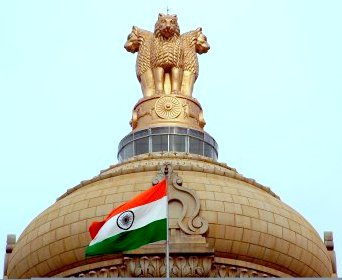SN Misra
Good governance is the sine-qua-non of a responsible democratic polity. While the political executive sets the tone for policy, it’s left to the bureaucracy to carry out these policies without fear, favour or arbitrariness. It should be useful to analyse in retrospect the evolving contours of the Civil Service after Independence, the administrative reforms carried out so far and the way forward for the bureaucracy.
The bureaucracy here has gone through three phases; (a) season of passive compliance of government policy, another of kowtowing the party in power during the 1973-77 Emergency years and the period of regulation rather than control after Economic Liberalisation in the 1990s.
In the ‘mixed economy’ model that India chose, the private sector played a secondary role. The ‘Licence Permit Quota’ Raj of the bureaucracy had a field day. The nationalisation of banks in 1971 and of the coal mines in 1973 came as the final straws.
The Emergency in 1975 was a major aberration in India’s democratic journey. The party in power expected the bureaucracy to toe the political philosophy of the government, and realise the goals of socialism by acquiring and distributing land without paying due compensation. The ostensible objective was to remove poverty through the slogan, Garibi Hatao. Forcible sterilization and high-handed methods to achieve the government’s 20-point programme were rampant. The civil servants, as the Justice Shah Commission of 1977 noted, “showed loyalty to the party in power in order to advance their career” and adopted foul means.
The real tectonic shift in governance, however, kick-started with the economic liberalisation in the 1990s. From a control regime, India embraced regulatory mechanism. FERA became FEMA, and TRAI regulated the telecom sector while PERDA and IRDA regulated pension and insurance. SEBI regulated the stock market.
All the same, the private sector has realised that the major role of the state is to create enabling environment for private sector to be the ‘temple of modern India’, rather than the PSUs. The gleaming airports, the sleek national highways, the highly efficient telecom sector are testimony to the change in governance patterns. Public Private Partnerships have become the new buzzword for bolstering the infrastructure. Many recommendations were made in the past for governance reforms in India. The Surendranath Committee called for domain specialisation after 13 years of service. Officers should be encouraged to take up Ph.D. in their area of interest and build expertise. A major move made by the Modi government is to induct officers at the joint secretary level on contract basis from corporate and academia. This looks good. The clamour for an All India Judicial Service remains still-born, as the judges seem to be blocking this move. It would make sense if competent law students from prestigious schools like NLS and NALSAR are allowed to join IJS.
The Second Administrative Reforms Commission had recommended against the additional constitutional protection given to civil servants through Article 311. This makes eminent sense as the present system of calling to book culprits in the administrative system is extremely dilatory and difficult, due to patronage officials received from their political bosses. Prof. Raghuram Rajan, in his stint as RBI Governor, had observed that there is a need to induct professionals on a lateral entry basis and pay them well to attract better talent to the banking system. Professionalism has to be the buzzword. When Dr. Montek Singh Ahluwalia was inducted in the finance ministry in 1978 from his previous assignment in the World Bank, he became a major architect for drafting the economic liberalisation roadmap for India.
The most-disturbing trend in bureaucracy, of late, is its increasing politicisation and their willingness to crawl when asked to bend. Crony capitalism is rampant, wherein bureaucracy is complicit. Efficiency of the economic sector can’t be at cost of socio-economic justice. Institutional independence must be respected by the party in power. For this to happen, the selection process should be changed for the major constitutional functionaries like judges, C&AG, CEC & RBI governors. The days of generalist administration is passé; professionals must take over the reins of the civil services.
The writer is a former joint secretary with the Union Government.







































